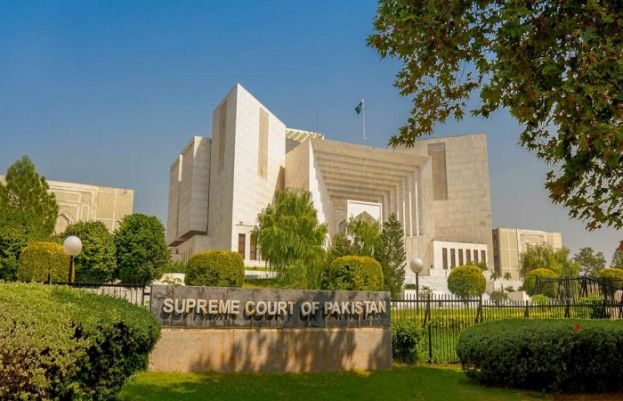Justice Aminuddin Khan of the Supreme Court on Thursday recused himself from a five-member bench hearing the PTI’s petition against the Election Commission of Pakistan’s decision to postpone polls to the Punjab Assembly till Oct 8.
The Supreme Court was set to resume the hearing of Pakistan Tehreek-e-Insaf’s (PTI) plea against the Election Commission of Pakistan (ECP’s) decision to defer the elections in Punjab and Khyber Pakhtunkhwa at 11:30 but the hearing was delayed following Justice Aminuddin’s recusal.
An SC bench headed by Justice Qazi Faez Isa on Wednesday ordered the postponement of cases being heard under Article 184(3) of the Constitution till the amendments made in the Supreme Court Rules 1980 regarding the discretionary powers of the chief justice to form benches.
Justice Amin-Ud-Din concurred with Justice Isa while Justice Shahid Waheed dissented with the majority order of 2-1 in a suo moto case regarding the grant of 20 marks to Hafiz-e-Quran while seeking admission in MBBS/BDS Degree under Regulation 9(9) of the MBBS and BDS (Admissions, House Job and Internship) Regulations, 2018.
At the outset of today’s hearing, when the five-member bench came to the courtroom, Chief Justice of Pakistan (CJP) Umar Ata Bandial said Justice Amin wants to say something.
“I recuse myself from the instant case in light of SC order issued by Justice Qazi Faez Isa,” the judge stated.
The bench comprised CJP Bandial, Justice Ijaz Ul Ahsan, Justice Munib Akhtar, Justice Aminuddin and Justice Jamal Khan Mandokhail.
After the recusal of a judge, a new bench will now be constituted to hear the case.
The PTI moved the apex court following the ECP decision to postpone the Punjab polls from April 30 to October 8 after financial and security authorities expressed their inability to support the electoral process.
During yesterday’s hearing, Justice Mandokhail debated the merits of the case as the order of the court was yet to be issued by the Supreme Court.
One of the hotly contested points in the plea is that the March 1 verdict of the Supreme Court was stuck down by a 4-3 majority or was accepted by a 3-2 majority.
While the Supreme Court has also sought assurance from the government to tone down the political temperature of the country.
Punjab, KP polls: Justice Aminuddin Khan recuses himself from SC bench

